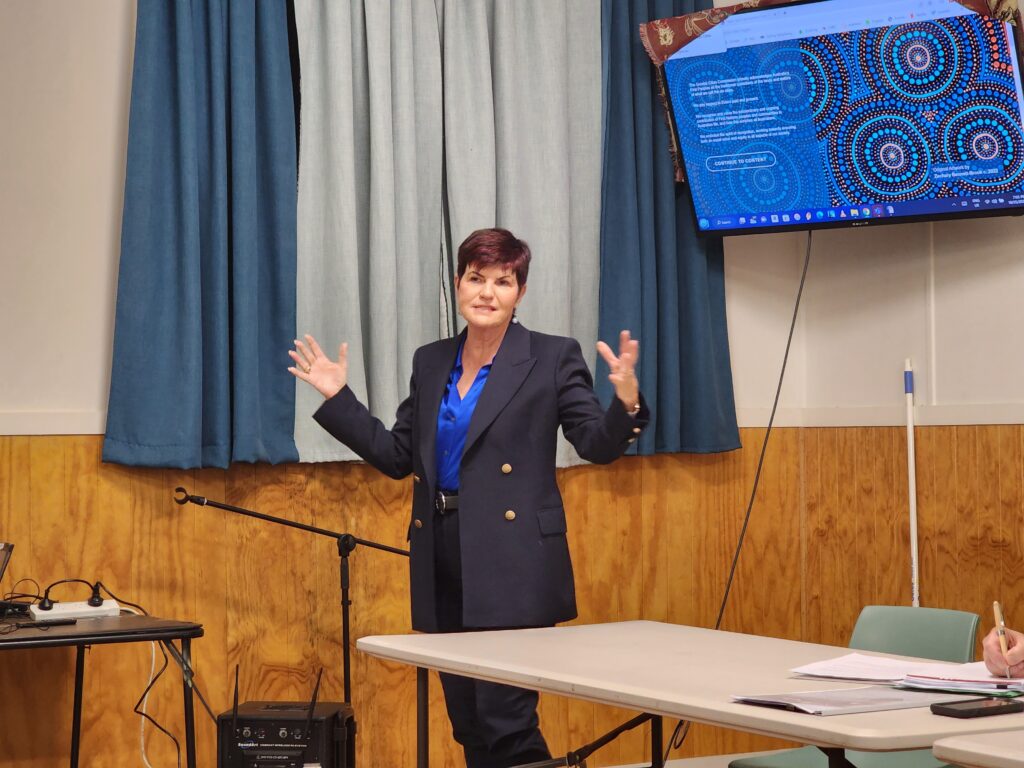Banks branch closures and outages indicate that this nation’s major financial institutions do not take their corporate social responsibilities seriously and it is the financially vulnerable who suffer the most.

By Jacquelene Pearson
I have been reporting on the impacts of bank branch closures since the late 1980s. Way back then it was country towns losing their branches. Now it is outer urban suburbs.
The National Australia Bank has just written to its customers to announce the closure of its Gosford Branch. I am an intermittent user of the Gosford NAB branch and I can tell you that the typical customers are poor, aged pensioners and others on fixed incomes and perhaps a smattering of small business owners.
Life on a limited fixed income such as the aged pension or Job Seeker can make it easier to budget if you have cash. Once you run out you cannot overspend or accidentally overdraw your account. Cash is soon to be a thing of the past.
Banks, however, are regulated by the Commonwealth Government and should be seen as delivering essential services. It is very difficult to survive in the 21st century without a bank account. All government payments are electronically delivered into your account. If you want a Medicare rebate or a taxation return you will need a transaction account.
Cheques are being phased out and cash is likely to follow shortly after. As the least computer literate generation fades away the expectation that we will all be able to digitally serve ourselves may become a reality.
It is a despicable and socially malevolent reality. The relationship between banker and customer is far from a level playing field. Interest rates on savings accounts never appear to rise on the same trajectory as home loans. When official rates are on the way down, credit card and personal loan interest rates always appear to remain remarkably higher than the cash rate.
Customer service is clearly a thing of the past. The Commonwealth Bank’s major outage on the first day of the NSW school holidays on June 26 is the most recent case in point. Businesses, travellers, shoppers all stranded and the apologies just didn’t seem to cut it.
Digital systems are imperfect and prone to outages but it is outrageous that the compulsory nature of banking does not have fail safe measures that ensure the public’s access to their hard-earned funds when needed.
As a consumer journalist and advocate I have found myself in meetings with representatives of the Big 4 banks + AMP, Australia’s too big to fail financial giants. I recall the day they told a group of consumer advocates that reform of the financial planning industry was simply not possible. We were told, firmly, that we needed to back off the industry’s trail commissions and other fees for services never delivered.
Standards have been raised over the decades and we all know the financial advice and commission scandals that rocked some of those institutions. A few heads rolled but legislative reforms were scaled back and far from ideal.
Then, of course, there was the Banking Royal Commission and still, even in these times of near-recession obscene banking profits and next-to-no duty of care.
We used to be able to tell people to vote with their feet and move to a credit union or community bank but real competition has dwindled.
It’s a sad and sorry affair and the only real solution is to play their game. Make sure you pay as little interest and as few fees as possible. Be persistent if you have a complaint and it is not dealt with. Ask for it to be escalated. Banks must have dispute resolution procedures and there are independent financial ombudsmen schemes.
We are captives of the banking system. If they continue to close down their branches perhaps we all need to buy a minimum parcel of shares and start turning up at their head offices and annual general meetings to demand some level of basic customer service and care.


